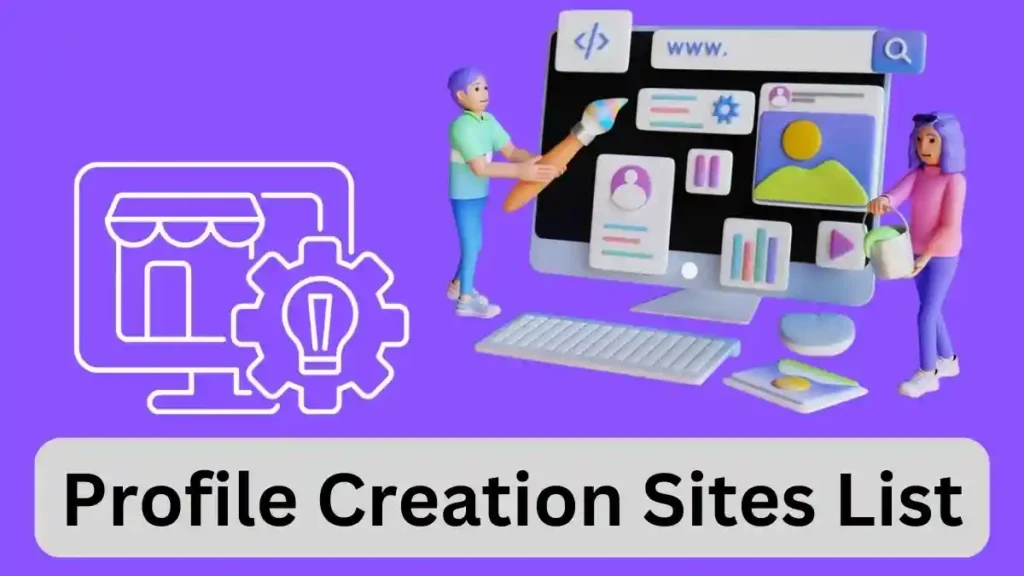Developing an effective service business marketing strategy is crucial for standing out in today's competitive landscape. Unlike product-based businesses, service providers face unique challenges in demonstrating value before purchase, building trust, and showcasing intangible offerings. This comprehensive guide will walk you through every aspect of creating a marketing strategy that drives consistent growth and customer loyalty for your service business.
Table of Contents
What is a Service Business Marketing Strategy?
A service business marketing strategy is a comprehensive plan that outlines how a service-based company will attract, engage, and retain customers. Unlike product marketing, service marketing focuses on demonstrating expertise, building trust, and showcasing the intangible benefits of professional services. This strategy encompasses everything from branding and digital presence to client acquisition and retention tactics specifically tailored for businesses that sell expertise, time, or specialized skills rather than physical products.
Why Your Service Business Needs a Specialized Marketing Approach
Service businesses operate differently from product-based companies, which means traditional marketing tactics often fall short. Your potential clients cannot touch, see, or try your service before purchasing. This creates a trust gap that must be bridged through strategic marketing. A well-crafted service marketing strategy addresses this challenge by focusing on demonstrating credibility, showcasing results, and building the know-like-trust factor that convinces potential clients to choose your business.
Key Components of an Effective Service Marketing Strategy
1. Defining Your Target Audience and Ideal Client
Understanding exactly who needs your services is the foundation of any successful marketing strategy. Create detailed client personas that include demographics, pain points, goals, and buying behaviors.
2. Unique Value Proposition Development
Clearly articulate what makes your service different and better than competitors. Focus on the specific outcomes and benefits clients can expect.
3. Service Positioning and Brand Messaging
Position your business as the obvious choice within your niche. Develop consistent messaging that resonates with your ideal clients across all marketing channels.
4. Multi-Channel Marketing Plan
Implement a coordinated approach across digital and traditional marketing channels that reaches your audience where they spend their time.
Digital Marketing Strategies for Service Businesses
Content Marketing for Service Providers
Content marketing establishes your authority and helps potential clients understand your expertise. Create blog posts, case studies, whitepapers, and guides that address your audience's specific challenges and questions.
Search Engine Optimization (SEO) for Service Businesses
Local SEO is particularly important for service businesses targeting specific geographic areas. Optimize your website for relevant keywords, create location-specific pages, and build quality backlinks to improve visibility in search results.
Social Media Marketing Strategies
Choose platforms where your ideal clients are active. LinkedIn works well for B2B services, while Instagram and Facebook may be better for consumer-focused services. Share behind-the-scenes content, client testimonials, and educational posts.
Email Marketing for Client Nurturing
Build an email list and create automated sequences that nurture leads through the customer journey. Share valuable content, success stories, and special offers to convert subscribers into clients.
Essential Marketing Tools for Service Businesses
Implementing your marketing strategy requires the right tools. Here are essential platforms that can streamline your efforts and improve results.
Marketing Automation Platforms
HubSpot – All-in-One Marketing Solution
HubSpot provides a comprehensive suite of tools for CRM, email marketing, social media management, and analytics. Its integrated approach makes it ideal for service businesses looking to streamline their marketing efforts.
Why Choose HubSpot for Your Service Business?
HubSpot stands out for its user-friendly interface and powerful automation capabilities. The platform helps you track client interactions, automate follow-ups, and measure marketing performance all in one place.
SEO and Content Research Tools
SEMrush – Comprehensive SEO Platform
SEMrush offers powerful keyword research, competitor analysis, and site audit tools that help service businesses improve their online visibility and attract more qualified leads.
SEMrush Features for Service Businesses
- Keyword research for your service area
- Competitor analysis to identify gaps
- Local SEO tools for geographic targeting
- Content marketing platform for idea generation
Comparison of Top Marketing Platforms for Service Businesses
| Platform | Best For | Key Features | Pricing Tier | Free Trial |
|---|---|---|---|---|
| HubSpot | All-in-one marketing automation | CRM, email marketing, analytics | Starts at $45/month | Free plan available |
| SEMrush | SEO and content research | Keyword research, competitor analysis | Starts at $129.95/month | 7-day free trial |
| Mailchimp | Email marketing | Automation, templates, analytics | Free plan available | Always free tier |
| Canva | Visual content creation | Templates, design tools, branding | Free plan available | Always free tier |
How to Implement Your Service Business Marketing Strategy
Step 1: Conduct Market Research
Begin by analyzing your competition, understanding industry trends, and identifying gaps in the market that your service can fill.
Step 2: Set Clear Marketing Objectives
Establish specific, measurable, achievable, relevant, and time-bound (SMART) goals for your marketing efforts.
Step 3: Develop Your Brand Identity
Create a consistent visual identity and brand voice that differentiates your service business and resonates with your target audience.
Step 4: Create a Content Strategy
Plan and create valuable content that addresses your ideal client's pain points and positions your business as an authority.
Step 5: Implement and Track Your Campaigns
Execute your marketing activities across chosen channels and use analytics to measure performance and make data-driven adjustments.
Budgeting for Your Service Business Marketing
Determining how much to invest in marketing is a common challenge for service businesses. A general guideline is to allocate 5-10% of your projected revenue to marketing activities. However, this percentage may vary based on your growth stage, industry, and competition.
Marketing Budget Allocation Example
- Website development and maintenance: 20%
- Content creation: 25%
- Digital advertising: 30%
- Marketing tools and software: 15%
- Events and networking: 10%
Measuring Marketing Success for Service Businesses
Tracking the right metrics ensures your marketing strategy delivers a positive return on investment. Key performance indicators for service businesses include:
- Lead generation rate
- Cost per acquisition
- Client lifetime value
- Website traffic and engagement
- Conversion rates at each stage of the funnel
Common Service Business Marketing Mistakes to Avoid
1. Focusing Only on Features Instead of Benefits
Clients care more about outcomes than service features. Frame your marketing around the results you deliver.
2. Inconsistent Brand Messaging
Maintain consistent communication across all touchpoints to build recognition and trust.
3. Neglecting Existing Clients
Retaining current clients is more cost-effective than acquiring new ones. Implement retention strategies alongside acquisition efforts.
4. Underestimating the Power of Testimonials
Social proof is especially powerful for service businesses. Collect and prominently display client testimonials and case studies.
Service Business Marketing Strategy for Different Industries
Marketing Strategies for Consulting Businesses
Consulting firms should focus on demonstrating expertise through thought leadership content, speaking engagements, and case studies that showcase problem-solving capabilities.
Marketing Strategies for Professional Services
Law firms, accounting practices, and other professional service providers should emphasize credentials, experience, and client success stories while maintaining a professional brand image.
Marketing Strategies for Home Services
Plumbers, electricians, and other home service businesses benefit from strong local SEO, review management, and visual content that showcases their work.
Marketing Strategies for Health and Wellness Services
Health practitioners should focus on building trust through educational content, practitioner credentials, and patient testimonials while adhering to industry regulations.
E-commerce Marketing Strategies for Beginners
While this guide focuses on service businesses, many principles overlap with e-commerce marketing. If you are exploring e-commerce opportunities, begin with these fundamental strategies:
- Optimize product pages with clear descriptions and high-quality images
- Implement email marketing sequences for cart abandonment
- Leverage customer reviews and user-generated content
- Utilize social media advertising with precise targeting
- Offer limited-time promotions to drive urgency
The Future of Service Business Marketing in 2025 and Beyond
Service marketing continues to evolve with technological advancements and changing consumer behaviors. Key trends to watch include:
- Increased personalization through AI and data analytics
- Greater emphasis on video content and virtual consultations
- Integration of augmented reality for service demonstrations
- Growing importance of voice search optimization
- Expanded use of chatbots for initial client interactions
Ready to Transform Your Service Business Marketing?
Implementing a comprehensive marketing strategy requires the right tools and expertise. Consider leveraging professional services to accelerate your results.
Find expert marketing professionals on Fiverr who can help implement the strategies discussed in this guide.
Frequently Asked Questions About Service Business Marketing
What is the most effective marketing channel for service businesses?
The most effective marketing channel varies by industry and target audience. However, a combination of search engine optimization, content marketing, and strategic social media use typically delivers the best results for service businesses.
How long does it take to see results from a service business marketing strategy?
While some tactics like paid advertising can generate immediate leads, most comprehensive marketing strategies take 3-6 months to show significant results. Consistent implementation is key to long-term success.
What percentage of revenue should a service business spend on marketing?
Service businesses typically allocate 5-15% of their revenue to marketing, with newer businesses often investing at the higher end of this range to establish their presence in the market.
How can service businesses measure marketing ROI?
Track metrics such as cost per lead, customer acquisition cost, client lifetime value, and conversion rates at each stage of the marketing funnel to calculate marketing return on investment.
What is the difference between B2B and B2C service marketing?
B2B service marketing typically involves longer sales cycles, multiple decision-makers, and a focus on ROI and business outcomes. B2C service marketing often emphasizes emotional benefits, convenience, and immediate solutions to consumer problems.
How important is local SEO for service businesses?
Local SEO is crucial for service businesses that serve specific geographic areas. Optimizing for local search helps potential clients in your service area find your business when they need your services.
What are some low-cost marketing strategies for new service businesses?
New service businesses can leverage content marketing, social media engagement, email marketing, networking, and strategic partnerships as cost-effective ways to build visibility and attract initial clients.
Conclusion
Developing and implementing a comprehensive service business marketing strategy requires careful planning, consistent execution, and ongoing optimization. By understanding your target audience, creating compelling messaging, leveraging the right marketing channels, and utilizing effective tools, you can build a steady stream of qualified leads and grow your service business sustainably. Remember that marketing is an investment in your business future, and the strategies outlined in this guide will position your service business for success in 2025 and beyond.
Ready to Implement Your Service Business Marketing Strategy?
Get started with the tools recommended in this guide to accelerate your marketing results.






